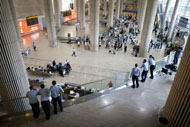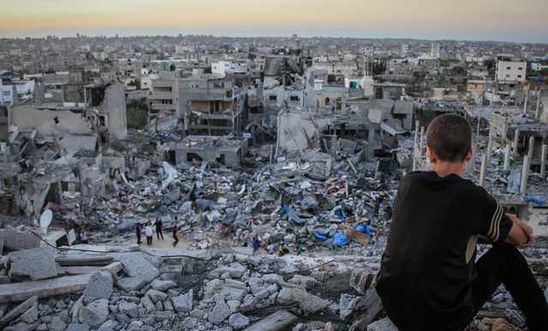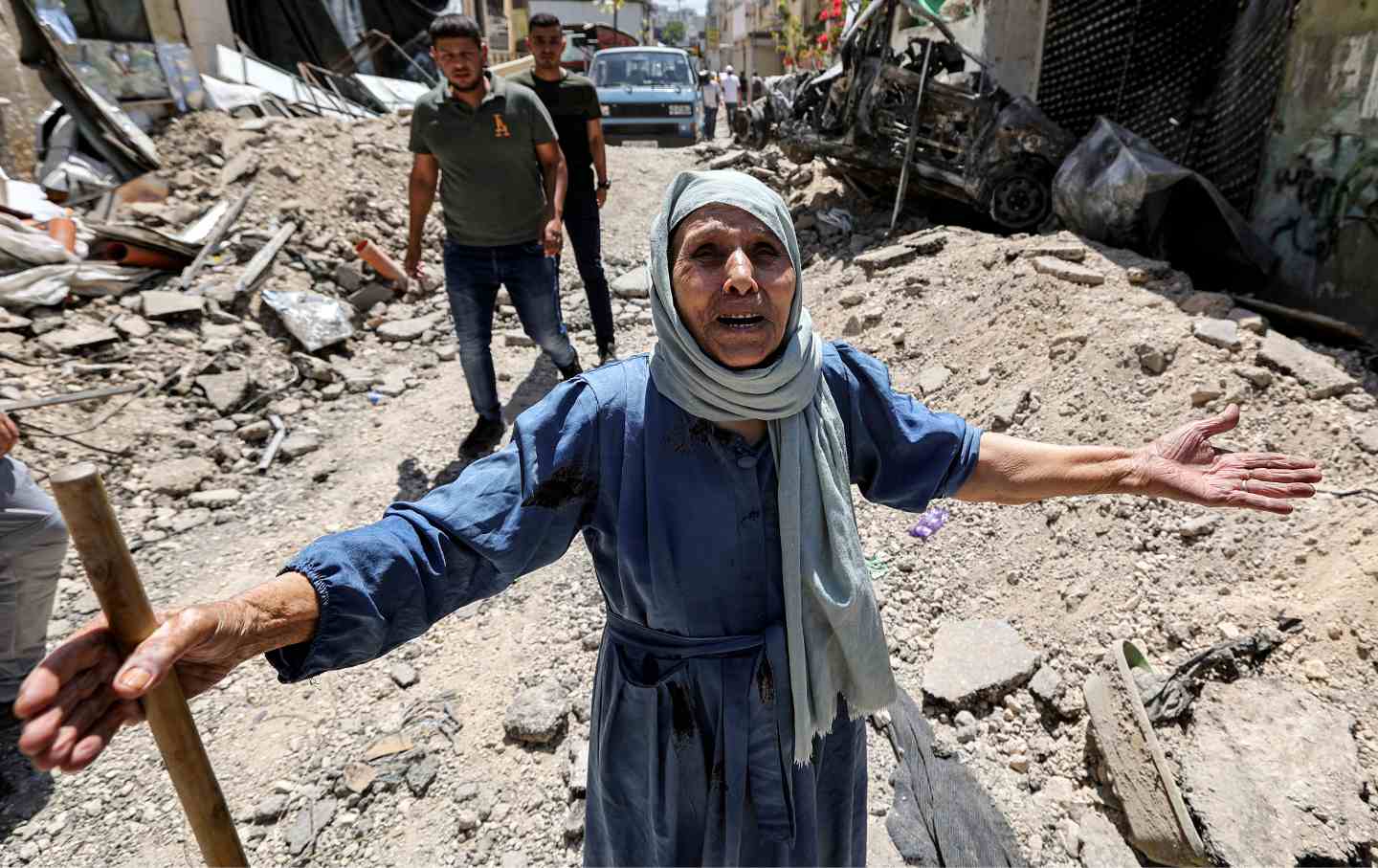
The most challenging type of argument is when both sides have valid points. As the majority of Palestinian civil servants enter their third day of strikes in protest of not receiving salaries for six consecutive months, the question that must be addressed is not only which side’s point is the more valid but ultimately, whether it really matters.
On the one hand, any democratic system grants its citizens the right to protest, to express their discontent with their elected government’s handling of any given matter. The Palestinians should be no different. When a teacher or health care worker has not been paid for half a year, they should be able to protest this to their government and should also be offered either compensation for their grievances or at least a credible explanation as to why the situation has gone awry.
For Palestinian civil servants, namely those working in the education sector, nothing of the sort has been provided to them. Angry, despondent and drowning day by day into a sea of debt, these workers see no light at the end of the tunnel and have resorted to their final bargaining chip – refusing to show up to work until their demands are met.
Historically, strikes have always been utilized as a last resort because of their powerful nature. Prisoners on hunger strike sacrificed their lives in Ireland in 1981 to further their cause and Reverend Martin Luther King was assassinated in 1968 while participating in a garbage workers’ strike in Memphis, Tennessee. In Palestine, the repercussions of this fledgling protest have already been felt across the board. Thousands of children have been kept home on what was to be the start of the school year because teachers and school staff have refused to punch in their time cards. Employees of the health sector and other government bodies have also joined the strike amid protests from government officials, who claim they are not to blame.
Hence, the other side of the story. While the government may have reacted badly to the strike, calling it “illegal” and threatening to take punitive measures against those who refuse to report to their workplaces, ultimately it must be acknowledged that the government really doesn’t have the money to pay its employees. Ever since Hamas won the Legislative Council elections last January and subsequently formed the government, it has been squeezed dry by Israel and the international community. Foreign aid has been virtually cut off from the United States and Europe, which consider Hamas a “terrorist” organization. This has empowered Israel in justifying the withholding of Palestinian Authority revenues, routinely used in the past to pay government employee salaries.
This is where the matter gets sticky. While the concept of strikes is a fundamental right, in the specific case of the Palestinians in the West Bank and the Gaza Strip the matter has as much to do with political power struggles as it does with salaries.
For one, the workers’ union that organized and implemented the strike is predominantly Fateh affiliated as is a large portion of government employees. The presidency, currently at odds with the government over a myriad of issues, is also Fateh-run under veteran Fateh leader Mahmoud Abbas.
As the ousted party, which begrudgingly became the opposition, Fateh has still not fully comprehended the fact that the PA is no longer under its full control. For 12 years, ever since the Palestinian Authority was created, Fateh always sat at the helm, steering the people whichever way it deemed appropriate.
The situation did a clean "180" last January when Hamas won the majority of seats in the PLC and formed a predominantly Hamas government. Fateh found itself on the outside, with only the thin thread of the presidency holding it to any sort of power.
So, after years of being criticized and politically challenged by the opposition, namely Hamas, Fateh has now found its golden opportunity to strike back. The government is impoverished and faltering under extreme international and, now, internal pressures. Hamas government officials have vowed not to compromise their fundamental political positions in exchange for monetary compensation, especially their views on recognizing Israel’s right to exist. The international community, cheered on by the United States, continues to diplomatically shun Hamas, refusing to offer any funding directly to the government unless it moderates its political positions. Basically, what the western world wants is a Hamas government more like Fateh.
However, while the cash-strapped government is clearly in a bind, this is no excuse to crack down on the very people it says its represents. There is nothing illegal about strikes, and, as the ruling party, Hamas should be trying to find ways to negotiate with its civil servants to solve this crisis. Undoubtedly, the problem here must be viewed in the much larger political framework in which it exists. As long as the international community isolates the Hamas government, there will never be enough money to pay the millions of dollars owed to civil servants. The question is whether or not Hamas will be signing its own death certificate if it continues to hold its ground on its political stances while Fateh stands in the shadows just waiting for the moment when the government collapses under the weight of the pressure?
Unfortunately for the average citizen, neither of these scenarios is to its benefit. If the government continues to be held in this headlock by Israel, the US and the international community, everyone will suffer including the ruling party. No government can withstand such pressure from outside and also from its people, who also have a legitimate right to a dignified life.
On the other hand, if the government does fold and Fateh steps up to the base, this will only intensify the already brewing tensions between the two major political forces. Fingers will be pointed and blood will be shed because ulterior motives can never be misconstrued as common interests.
The Palestinians have already had a glimpse of what is to come if this situation gets out of hand. Two days ago, students in Nablus decided to defy the strike and head to their classrooms. Armed men suddenly appeared and opened fire, wounding a schoolboy.
As the battle between the Hamas government and the Fateh opposition grows fiercer and political agendas are pushed to their extremes, it is always the people who pay the consequences. It is high time both sides come to their senses and realize this dangerous situation will never serve the interests of the entire people even if it seems to serve the interests of a few. Both Hamas and Fateh need to bite the bullet, sit down and try to hammer out an understanding that would eventually culminate in the formation of a national unity government. Only then, when these forces can come together for the common good while still respecting each other’s differences, can there be any hope for an end to this downward spiral.
Joharah Baker is a Writer for the Media and Information Programme at the Palestinian Initiative for the Promotion of Global Dialogue and Democracy (MIFTAH). She could be contacted at mip@miftah.org








